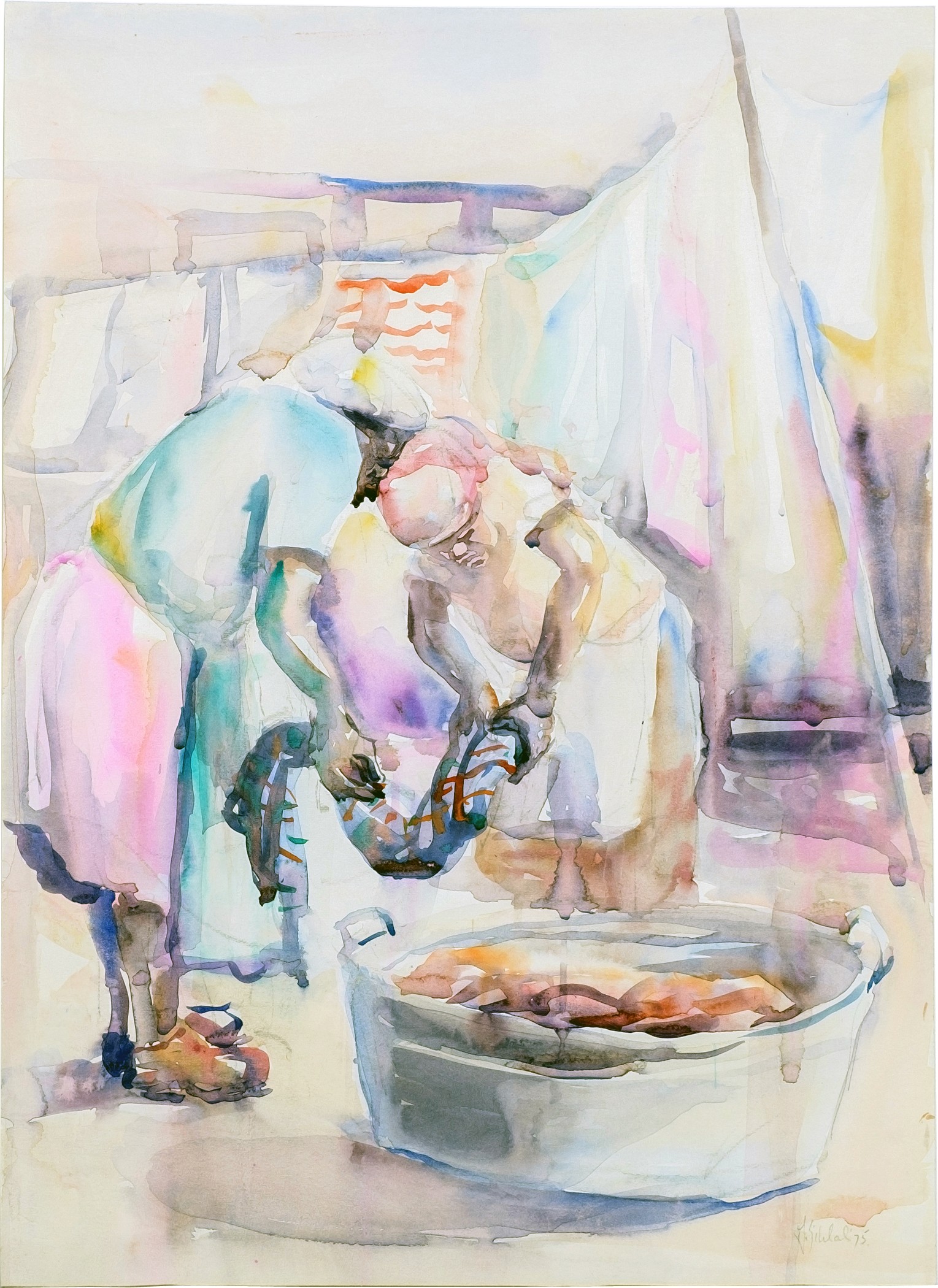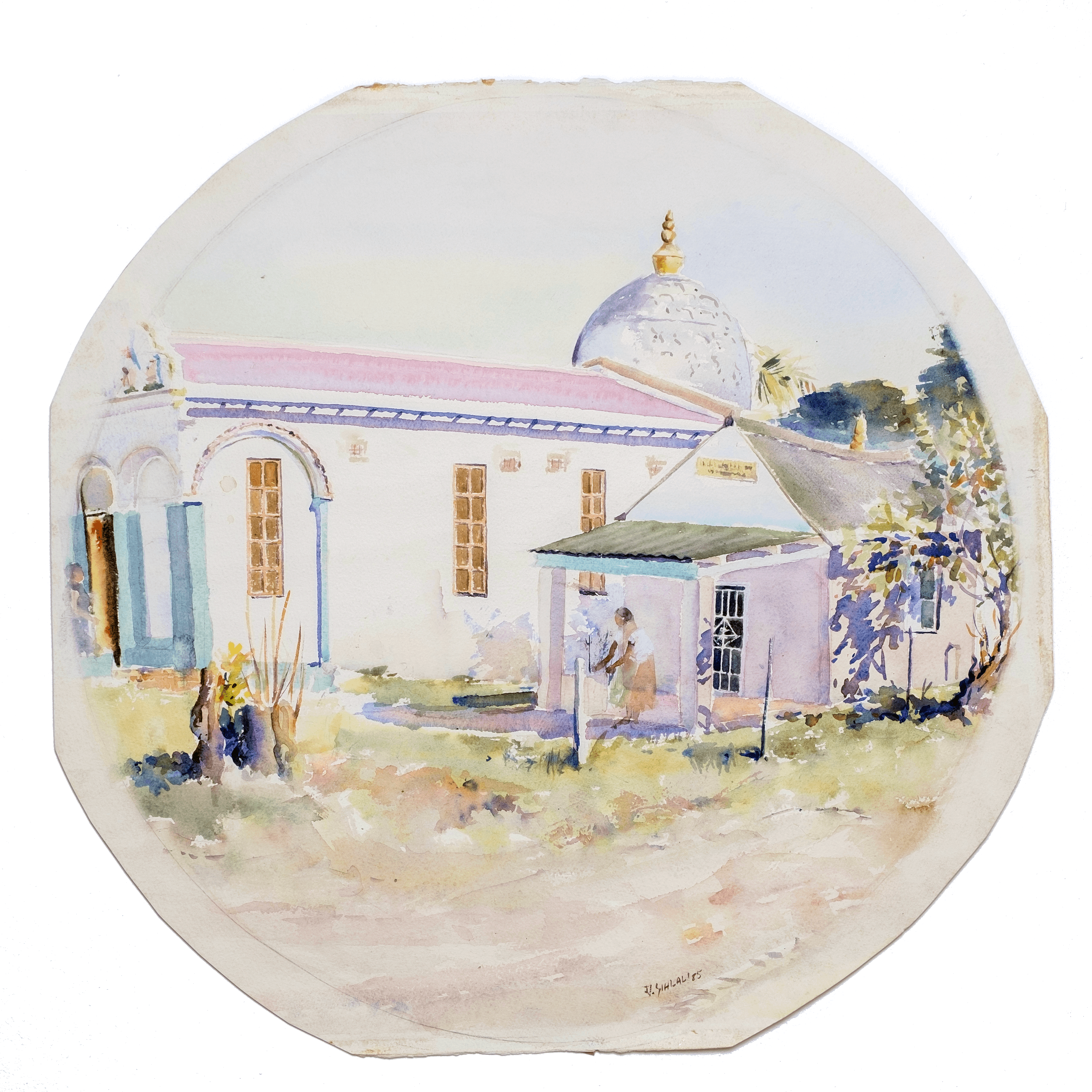Durant Sihlali
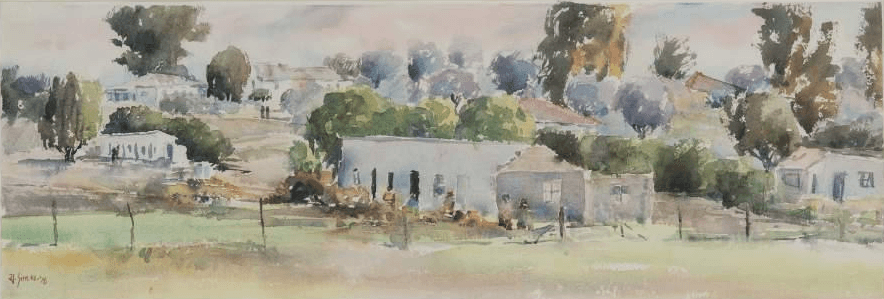
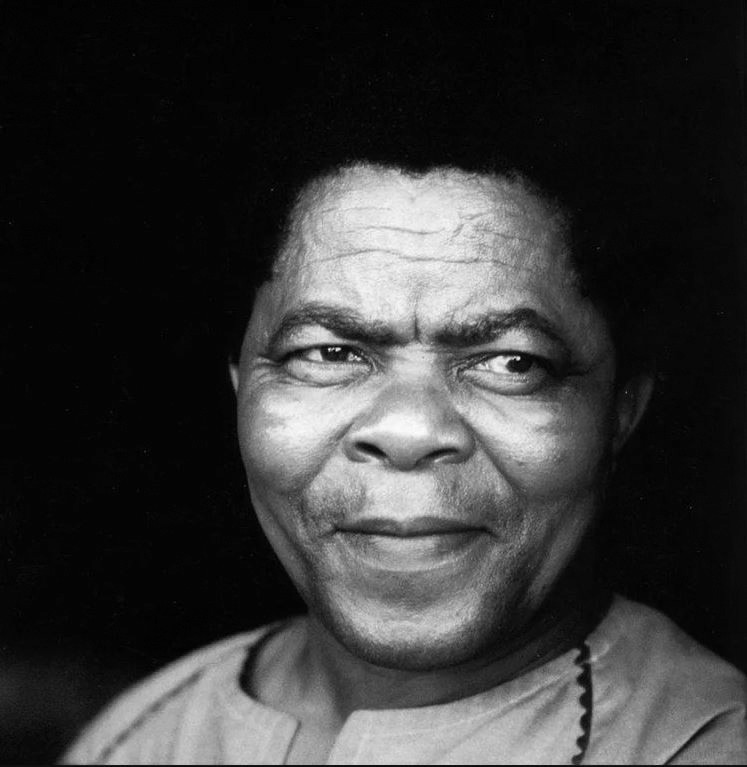



Durant Basi Sihlali was born on 5 March 1935 in an industrial area, Germiston, Transvaal, now known as Gauteng Province. Due to harsh living conditions, his parents sent him to live with his paternal grandparents in a rural village called Cala in the Eastern Cape. The wall murals Xhosa women painted captivated Sihlali, who tried to imitate the designs but was chastised for engaging in what was considered a women's job. He resorted to copying newspaper cartoons onto toilet rolls, the only paper available.
Sihlali moved back in with his parents at the age of 14, staying with them in Moroka outside Johannesburg, Transvaal. There he began informal art classes at the Chiawelo Art Centre under Alphius Kubeka, attending from 1950 to 1953. He also learned from the artists Carlo Sdoya and Sidney Goldblatt, and studied with Cecil Skotnes at the Polly Street Recreation Centre from 1953 to 1958. He married his wife, Annah Mokholo Moloi, in 1958, and had five children with her.
As a student of Skotnes, Sihlali departed from the instructor's approach of drawing on imaginative interpretations of traditional African sculptural forms. Instead, Sihlali worked from observations of the world around him, an approach which John Peffer notes was both conservative and radical: he resisted avant-garde art trends of the time and insisted on representing realities of urban life for blacks in South Africa.
Durant Basi Sihlali was born on 5 March 1935 in an industrial area, Germiston, Transvaal, now known as Gauteng Province. Due to harsh living conditions, his parents sent him to live with his paternal grandparents in a rural village called Cala in the Eastern Cape. The wall murals Xhosa women painted captivated Sihlali, who tried to imitate the designs but was chastised for engaging in what was considered a women's job. He resorted to copying newspaper cartoons onto toilet rolls, the only paper available.
Sihlali moved back in with his parents at the age of 14, staying with them in Moroka outside Johannesburg, Transvaal. There he began informal art classes at the Chiawelo Art Centre under Alphius Kubeka, attending from 1950 to 1953. He also learned from the artists Carlo Sdoya and Sidney Goldblatt, and studied with Cecil Skotnes at the Polly Street Recreation Centre from 1953 to 1958. He married his wife, Annah Mokholo Moloi, in 1958, and had five children with her.
As a student of Skotnes, Sihlali departed from the instructor's approach of drawing on imaginative interpretations of traditional African sculptural forms. Instead, Sihlali worked from observations of the world around him, an approach which John Peffer notes was both conservative and radical: he resisted avant-garde art trends of the time and insisted on representing realities of urban life for blacks in South Africa.
Durant Basi Sihlali was born on 5 March 1935 in an industrial area, Germiston, Transvaal, now known as Gauteng Province. Due to harsh living conditions, his parents sent him to live with his paternal grandparents in a rural village called Cala in the Eastern Cape. The wall murals Xhosa women painted captivated Sihlali, who tried to imitate the designs but was chastised for engaging in what was considered a women's job. He resorted to copying newspaper cartoons onto toilet rolls, the only paper available.
Sihlali moved back in with his parents at the age of 14, staying with them in Moroka outside Johannesburg, Transvaal. There he began informal art classes at the Chiawelo Art Centre under Alphius Kubeka, attending from 1950 to 1953. He also learned from the artists Carlo Sdoya and Sidney Goldblatt, and studied with Cecil Skotnes at the Polly Street Recreation Centre from 1953 to 1958. He married his wife, Annah Mokholo Moloi, in 1958, and had five children with her.
As a student of Skotnes, Sihlali departed from the instructor's approach of drawing on imaginative interpretations of traditional African sculptural forms. Instead, Sihlali worked from observations of the world around him, an approach which John Peffer notes was both conservative and radical: he resisted avant-garde art trends of the time and insisted on representing realities of urban life for blacks in South Africa.
Durant Basi Sihlali was born on 5 March 1935 in an industrial area, Germiston, Transvaal, now known as Gauteng Province. Due to harsh living conditions, his parents sent him to live with his paternal grandparents in a rural village called Cala in the Eastern Cape. The wall murals Xhosa women painted captivated Sihlali, who tried to imitate the designs but was chastised for engaging in what was considered a women's job. He resorted to copying newspaper cartoons onto toilet rolls, the only paper available.
Sihlali moved back in with his parents at the age of 14, staying with them in Moroka outside Johannesburg, Transvaal. There he began informal art classes at the Chiawelo Art Centre under Alphius Kubeka, attending from 1950 to 1953. He also learned from the artists Carlo Sdoya and Sidney Goldblatt, and studied with Cecil Skotnes at the Polly Street Recreation Centre from 1953 to 1958. He married his wife, Annah Mokholo Moloi, in 1958, and had five children with her.
As a student of Skotnes, Sihlali departed from the instructor's approach of drawing on imaginative interpretations of traditional African sculptural forms. Instead, Sihlali worked from observations of the world around him, an approach which John Peffer notes was both conservative and radical: he resisted avant-garde art trends of the time and insisted on representing realities of urban life for blacks in South Africa.
selected artworks
view all
view all
view all
view all
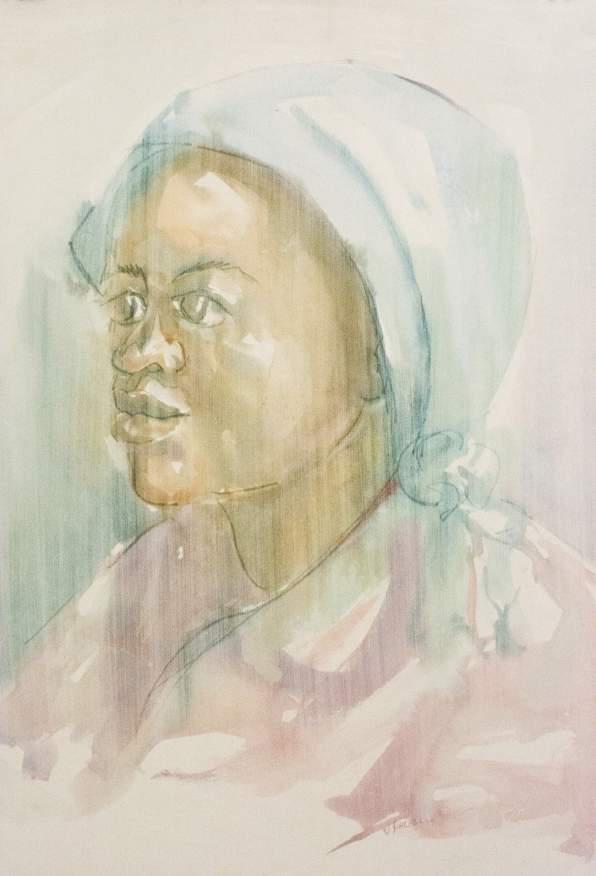


Woman In Blue Headscarf
Water Colour on Paper
Water Colour on Paper
Water Colour on Paper
Water Colour on Paper
68cm x 79cm
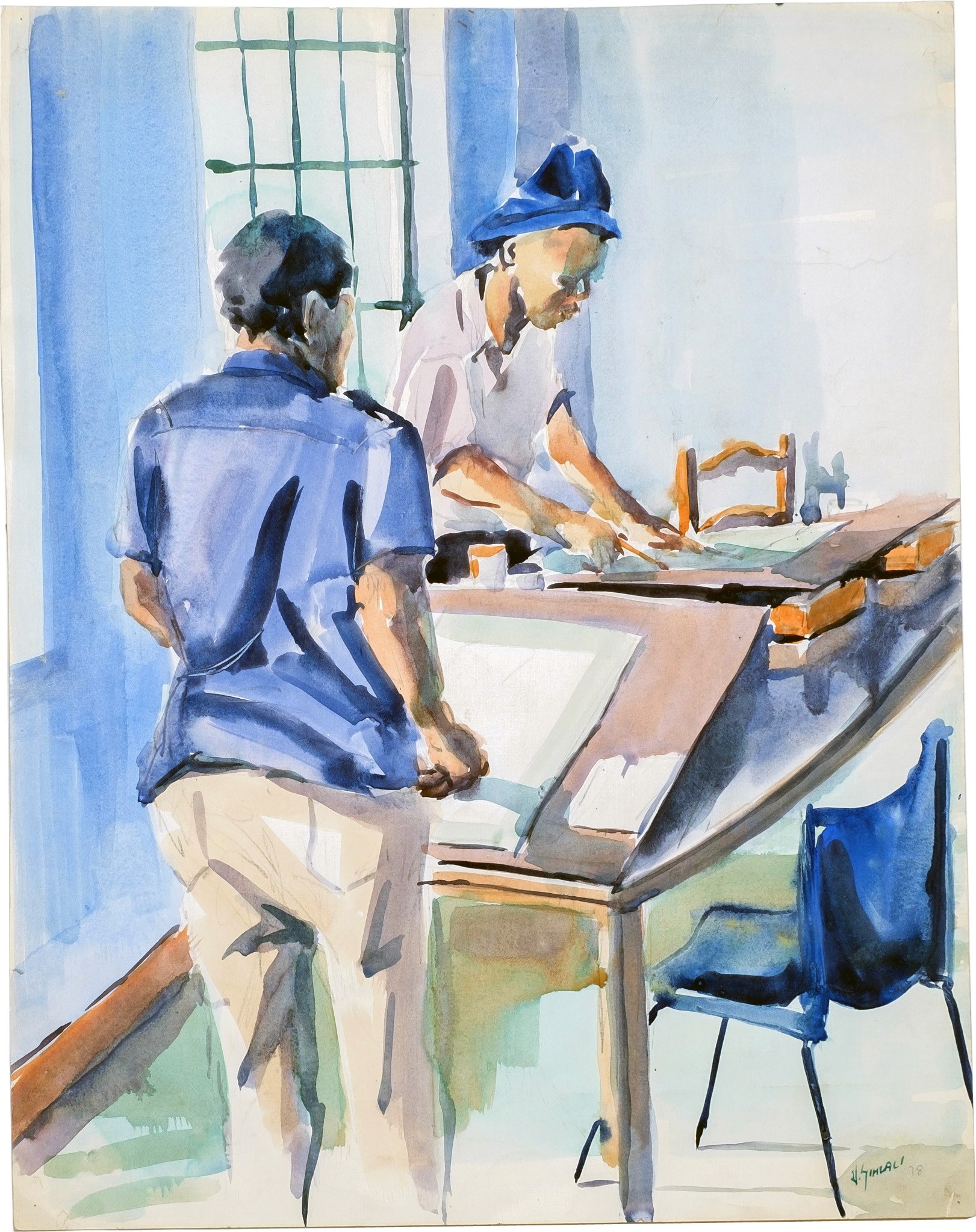


Entokozweni Early Learning centre Mdantsane
Water Colour on Paper
Water Colour on Paper
Water Colour on Paper
Water Colour on Paper
45cm x 58cm
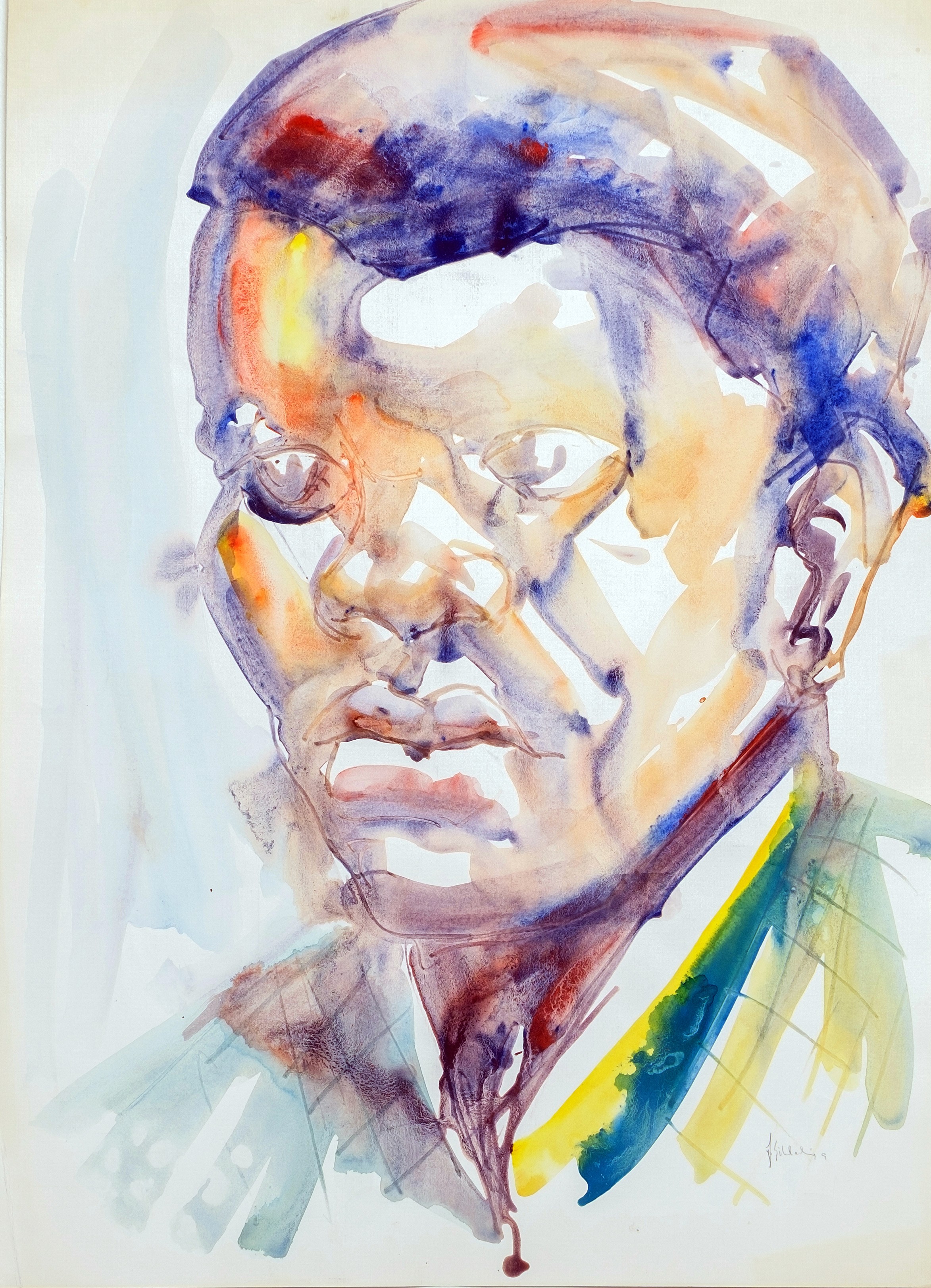


Untitled Portrait I
Water Colour on Paper
Water Colour on Paper
Water Colour on Paper
Water Colour on Paper
45cm x 61cm
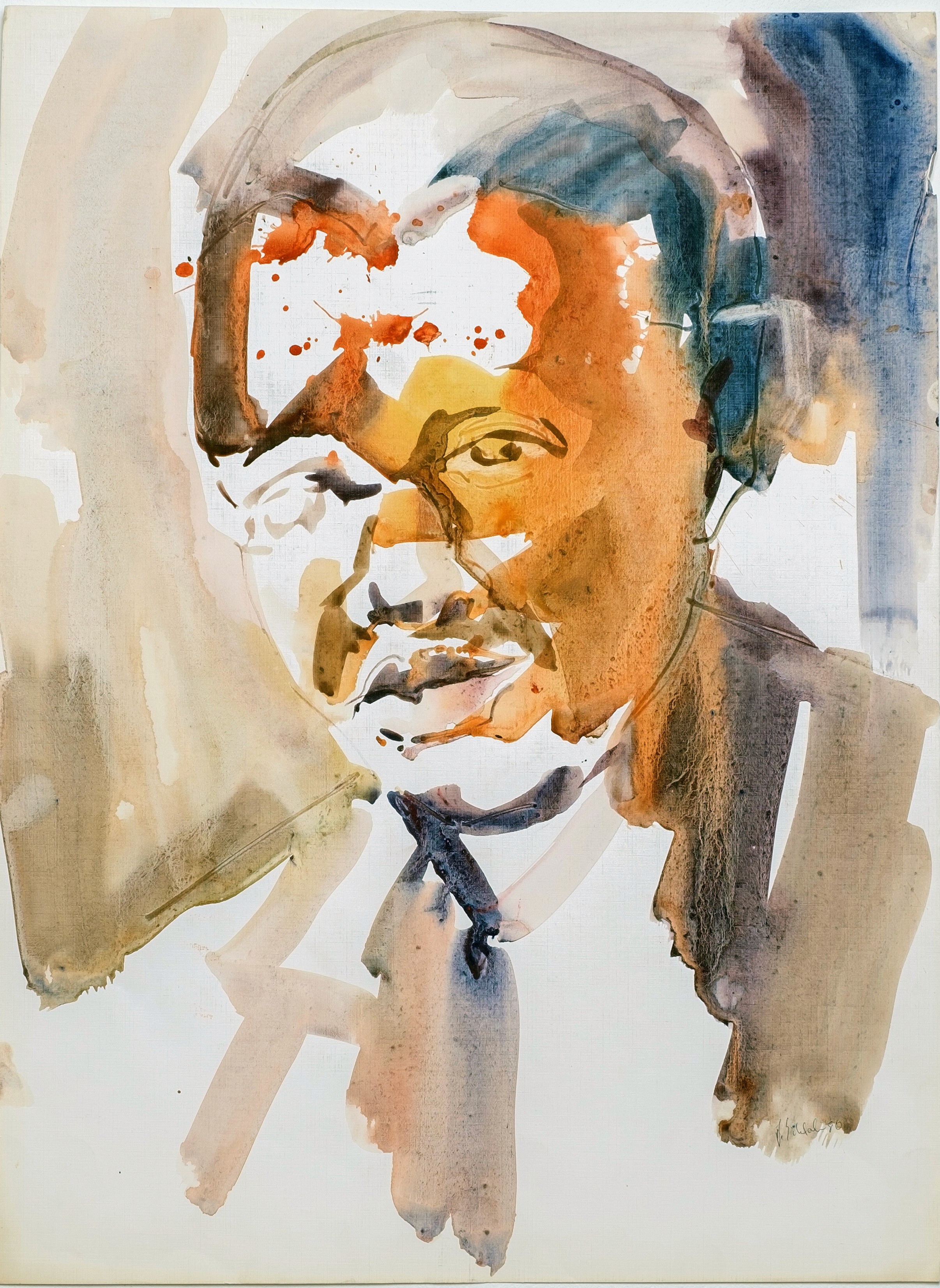


Untitled Portrait II
Water Colour on Paper
Water Colour on Paper
Water Colour on Paper
Water Colour on Paper
46cm x 62cm
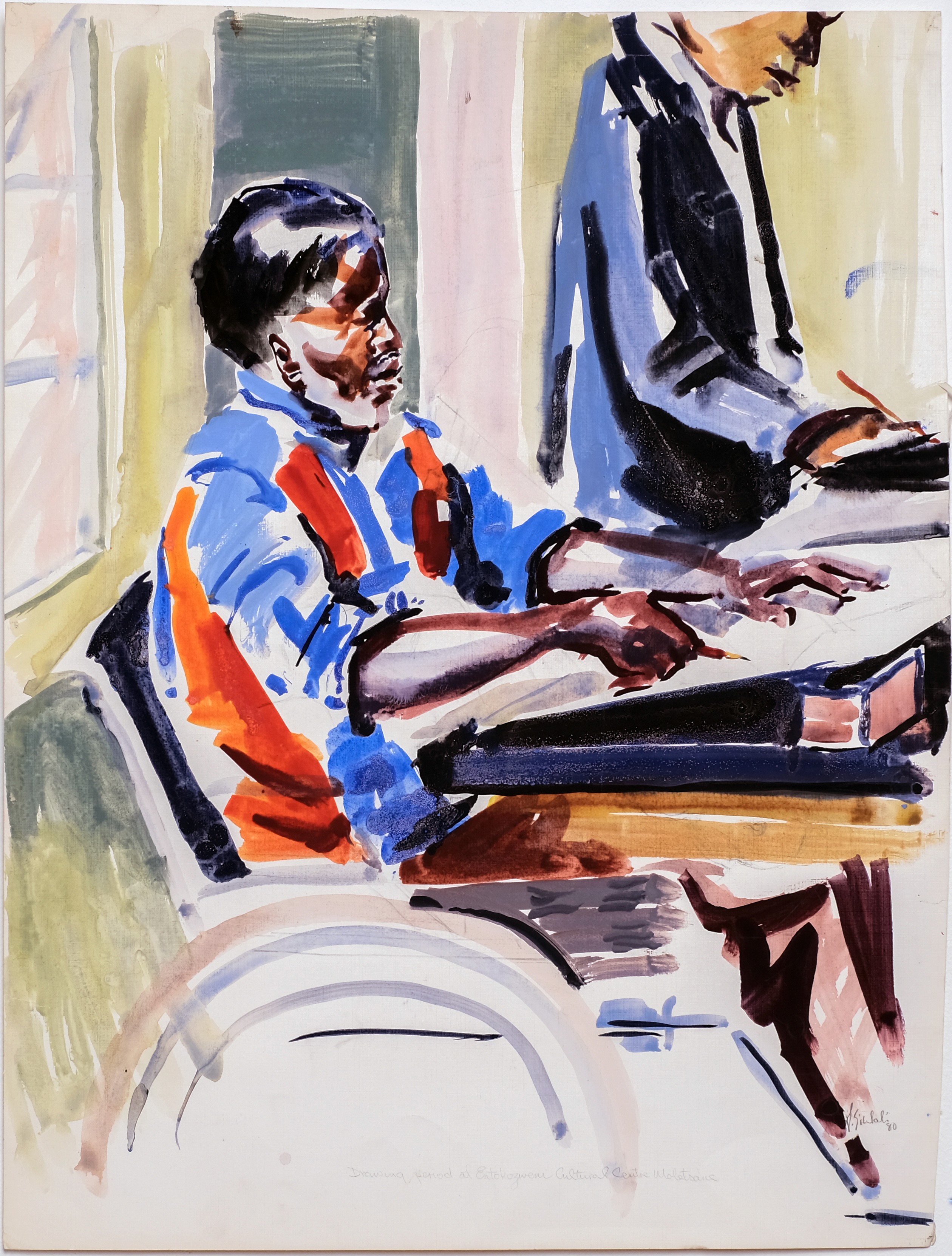


Drawing Period At Entokozweni Cultural Centre Mdantsane
Drawing Period At Entokozweni Cultural Centre Mdantsane
Drawing Period At Entokozweni Cultural Centre Mdantsane
Water Colour on Paper
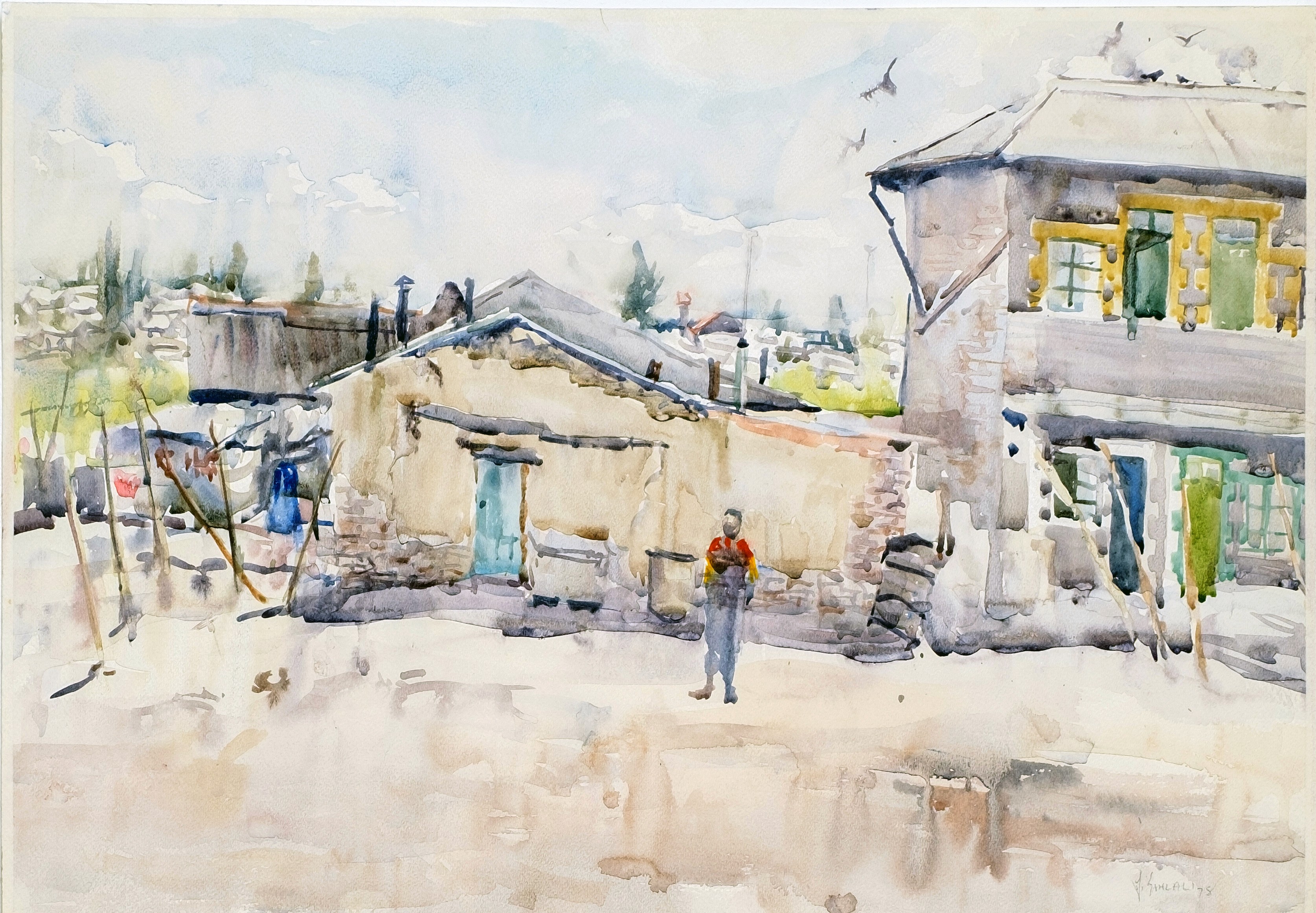


Untitled (boy outside)
Untitled (boy outside)
Untitled (boy outside)
Water Colour on Paper
38cm x 55cm
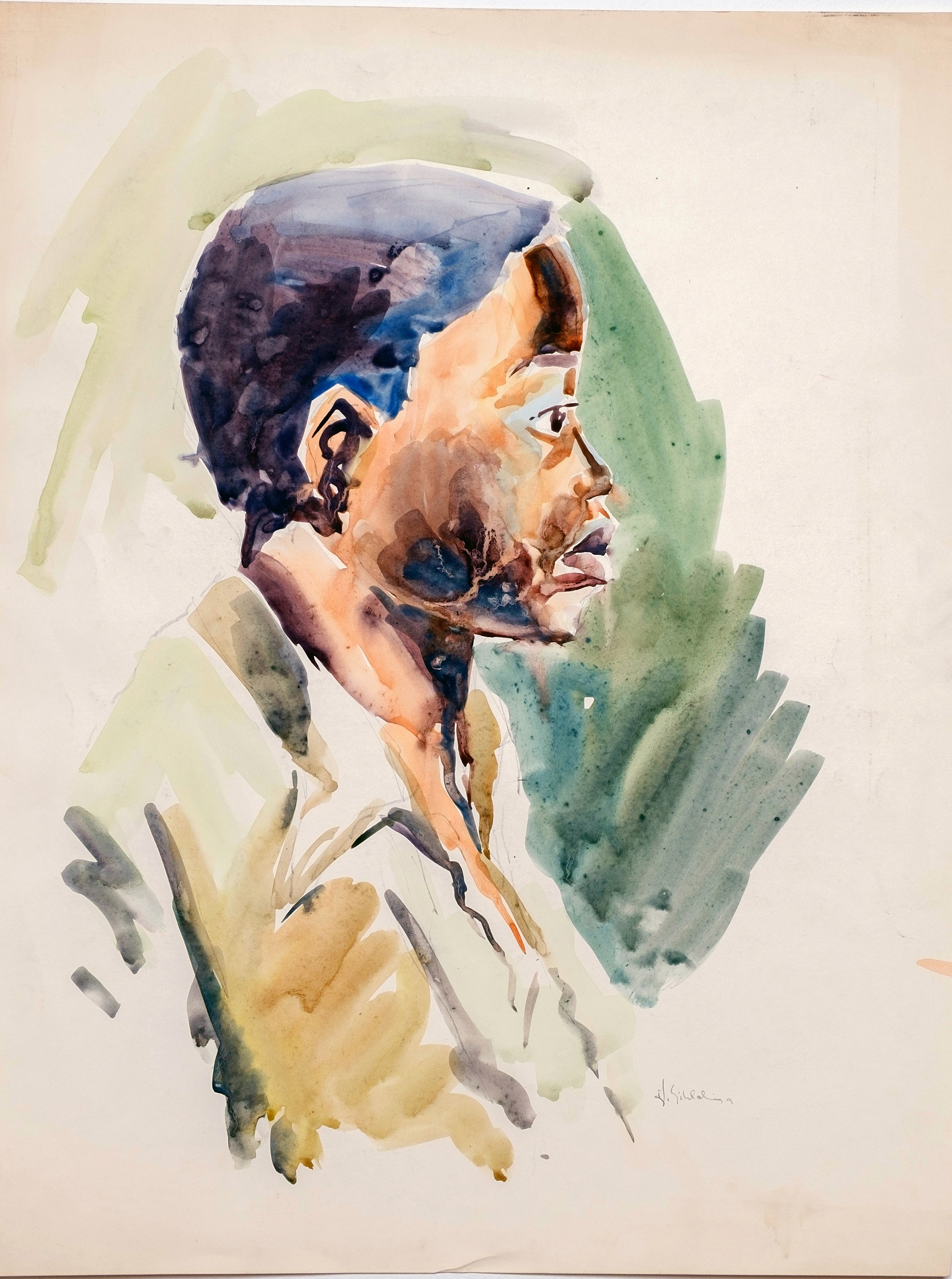


Untitled Profile of a Young Man
Untitled Profile of a Young Man
Untitled Profile of a Young Man
Water Colour on Paper
50cm x 66cm
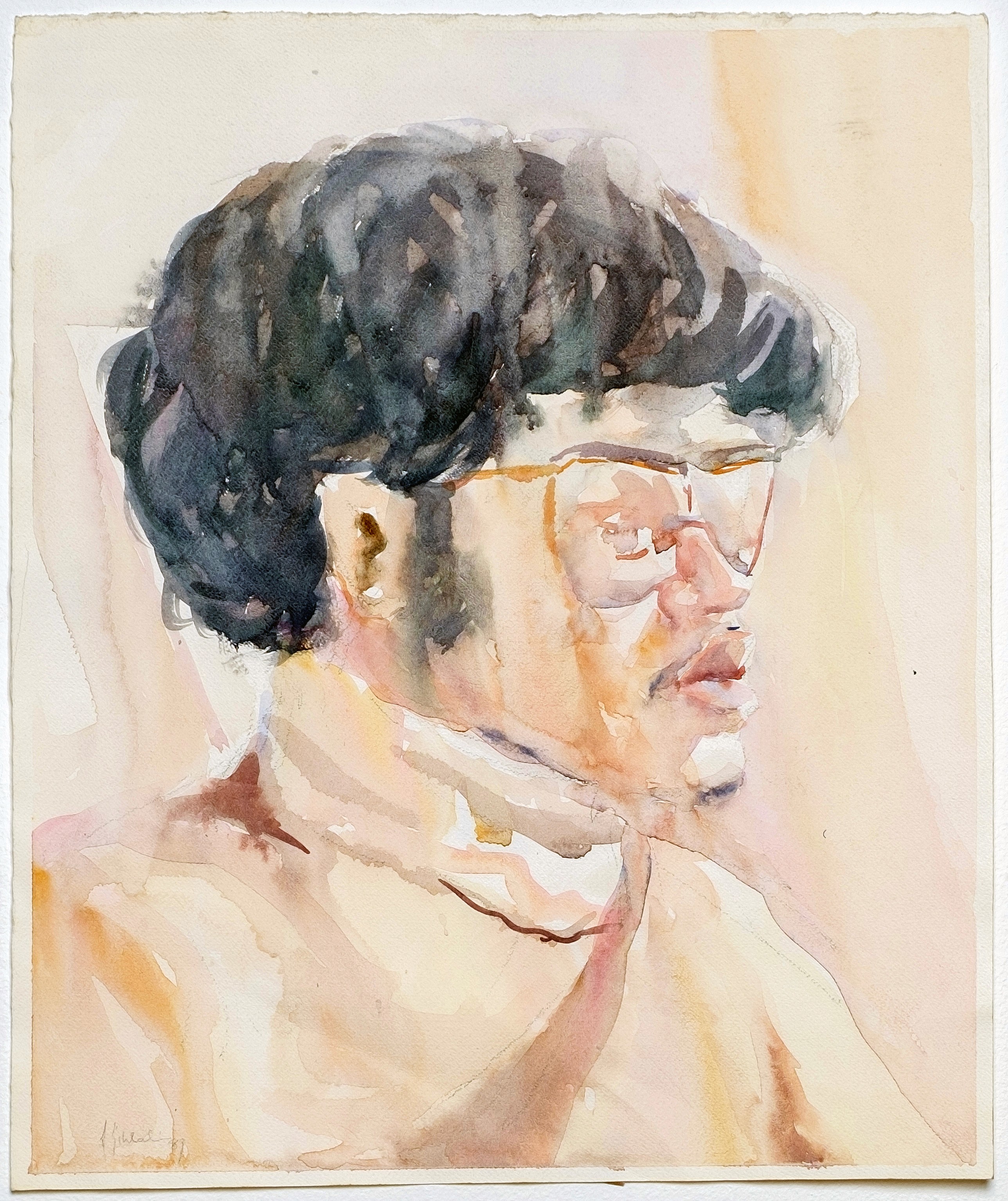


Untitled (Man with glasses)
Untitled (Man with glasses)
Untitled (Man with glasses)
Water Colour on Paper
VIEW ALL ARTISTS

